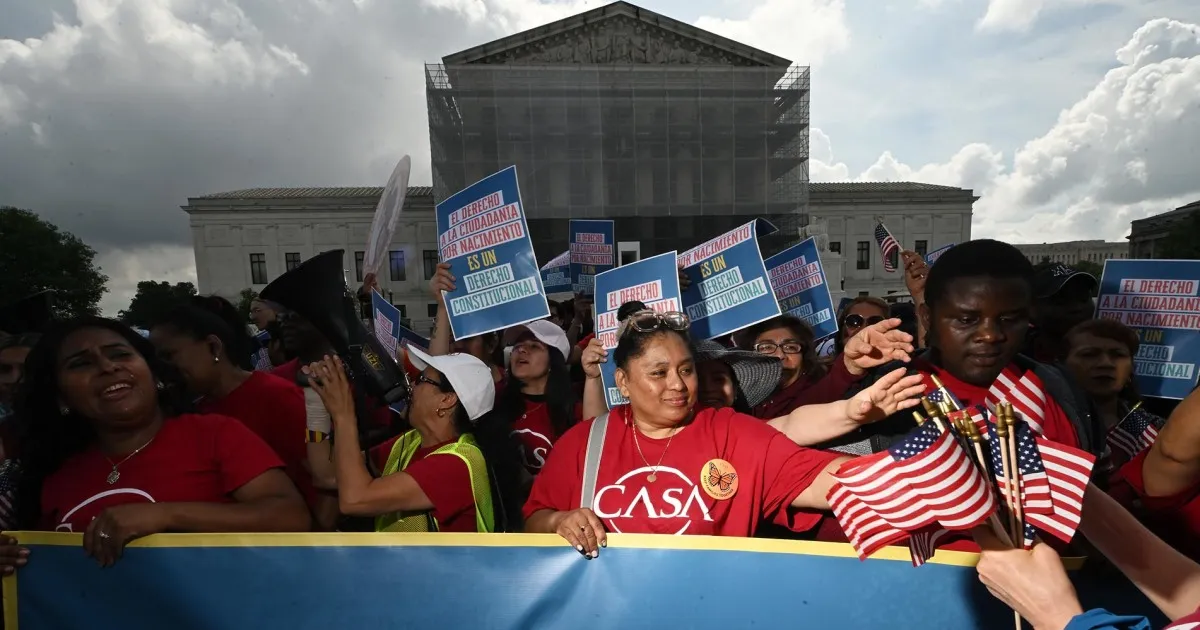
WASHINGTON — The Supreme Court is poised to wrap up its nine-month term on Friday with a series of pivotal rulings. Among these is a high-profile case concerning President Donald Trump's initiative to terminate automatic birthright citizenship. The court, which currently maintains a 6-3 conservative majority, has six cases pending decisions from those for which it heard oral arguments during its current term, which commenced in October.
In addition to the birthright citizenship case, the Supreme Court is set to deliberate on a variety of significant issues, including voting rights, religious rights, and health care matters. For ongoing updates and insights into these political developments, follow our live politics coverage.
The birthright citizenship case has garnered substantial attention, focusing not on the legality of Trump's proposal itself, but rather on whether federal judges possess the authority to impose a nationwide block against it during ongoing litigation. A ruling from the court regarding nationwide injunctions could have far-reaching implications, particularly as judges have frequently ruled against Trump concerning his extensive use of executive power. Furthermore, the Supreme Court has the option to avoid a decision on this overarching issue and instead examine the specifics of the proposed plan.
Birthright citizenship is granted under the Constitution’s 14th Amendment, which states: “All persons born or naturalized in the United States, and subject to the jurisdiction thereof, are citizens of the United States.” For generations, this provision has been widely interpreted, both by legal scholars and the general public across the political spectrum, as ensuring that anyone born on U.S. soil is recognized as an American citizen, with only a few exceptions, such as the children of diplomats.
In addition to the birthright citizenship case, the Supreme Court must also decide on five other critical matters, including:
Whether conservative religious parents can exempt their elementary school-age children from LGBTQ-themed books in the classroom. The legal status of congressional districts in Louisiana, which have been the subject of ongoing litigation. A Texas law imposing age restrictions on access to adult websites. A challenge to the Affordable Care Act's preventive care task force. A program from the Federal Communications Commission that provides subsidies for phone and internet services in underserved areas.As the Supreme Court prepares to deliver these crucial rulings, the outcomes could significantly influence various aspects of American law and society. Stay tuned for further developments as these cases unfold.